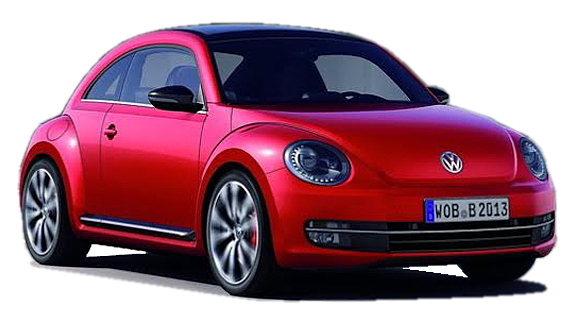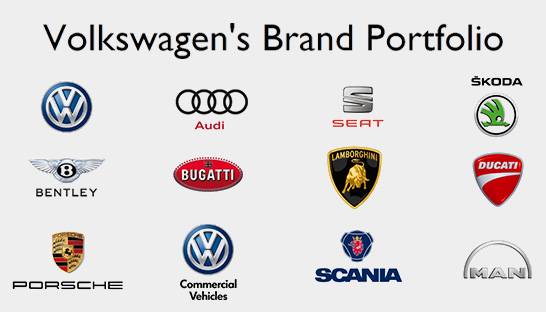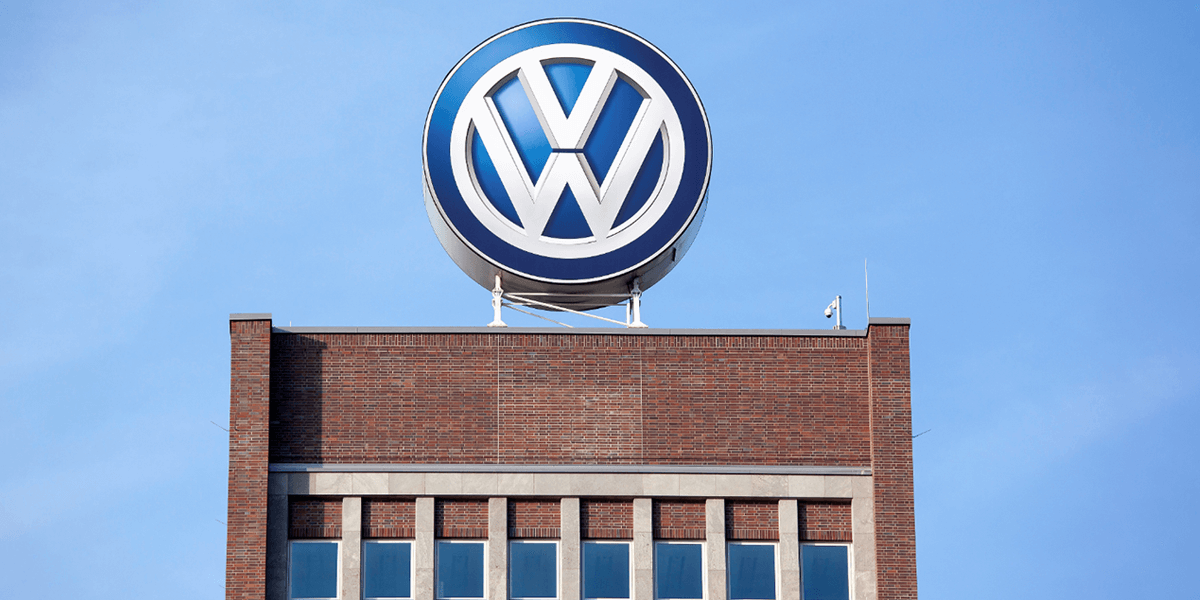Volkswagen (VW) is a German automobile manufacturer headquartered in Wolfsburg, Lower Saxony, Germany. It is the flagship brand of the Volkswagen Group, the largest automaker by worldwide sales in 2016 and 2017. The group’s biggest market is in China, which delivers 40 percent of its sales and profits.
Rooted in a rich history that spans decades, Volkswagen stands as a symbol of innovation, engineering prowess, and cultural significance. From its humble beginnings to becoming one of the world’s largest automobile manufacturers, Volkswagen’s journey embodies the evolution of automotive technology, design, and market presence.
Volkswagen was founded in 1937 by the German Labour Front under the Nazi Party. The company’s original mission was to produce a car that was affordable for the average person, hence the name “Volkswagen” which means “people’s car” in German. The company’s first car, the Beetle, was an instant success and went on to become one of the most popular cars of all time. The launch of the iconic Beetle, also known as the Type 1, in the late 1930s marked the company’s first step toward redefining automotive norms and introducing a vehicle that transcended socio-economic boundaries.

In the 1970s, Volkswagen introduced the Golf, which quickly became another best-seller. The Golf was more modern and stylish than the Beetle, and it offered a wider range of features. The Golf helped to solidify Volkswagen’s reputation as a manufacturer of high-quality, affordable cars.
In recent years, Volkswagen has expanded its lineup to include a variety of cars, SUVs, and vans. The company has also invested heavily in new technologies, such as electric cars and self-driving cars. Volkswagen is committed to being a leader in the automotive industry, and it is constantly innovating to meet the needs of its customers.
Some of the most popular Volkswagen cars are Beetle, Golf, Passat, Tiguan and Touareg amongst others.
Volkswagen is a global company with operations in over 150 countries. The company employs over 670,000 people worldwide. Volkswagen is committed to sustainability and environmental protection. The company has set ambitious goals to reduce its carbon emissions and to increase the use of renewable energy.
Volkswagen’s journey is a testament to the transformative power of automotive innovation and adaptability. From the inception of the Beetle as a “People’s Car” to the current endeavors in electric mobility and sustainability, Volkswagen’s story continues to evolve, resonating with a global audience and reflecting the ever-changing dynamics of the automotive industry. As the brand navigates the complexities of a rapidly changing world, it remains an enduring symbol of engineering excellence, cultural impact, and the enduring fascination of the open road.
Success Story of Volkwagen
Volkswagen’s captivating success story unfolds across the decades, epitomizing innovation, resilience, and global impact. Founded in 1937 in Wolfsburg, Germany, Volkswagen emerged with a mission to craft an affordable “People’s Car.” Despite challenges posed by World War II, the company’s visionary intent to democratize mobility led to the development of the iconic Volkswagen Beetle, an emblem of simplicity and reliability that swiftly gained popularity after the war.
The post-war era witnessed Volkswagen’s remarkable rebirth as the Beetle, affectionately known as the “Bug,” transcended national boundaries and symbolized economic revival across Europe and beyond. By the 1950s, Volkswagen expanded its influence, crossing the Atlantic to establish a foothold in the United States. Pioneering ingenious advertising campaigns and highlighting the Beetle’s distinctive features, Volkswagen solidified its reputation as an automotive trailblazer.
The 1960s marked a transformative phase with the introduction of the groundbreaking Volkswagen Golf. This compact hatchback not only redefined automotive design but also became synonymous with versatility and accessibility. As the 1970s and 1980s unfolded, Volkswagen expanded its offerings, diversifying its product lineup while consistently infusing innovation into its vehicles. The 1980s saw the company forming strategic alliances to enhance efficiency and weather economic challenges, solidifying its global presence.
The post-Cold War era presented new opportunities, and the fall of the Berlin Wall in 1989 opened doors to untapped markets in Eastern Europe. Volkswagen’s strategic maneuvering enabled it to embrace these emerging prospects, paving the way for expanded market share and influence. However, the 2000s brought environmental concerns to the forefront, prompting Volkswagen to invest in cleaner diesel technology and pioneering advancements in reducing emissions.
Yet, the 2010s brought both accolades and adversities. Volkswagen’s leadership in environmental sustainability was overshadowed by the “Dieselgate”scandal in 2015, where it was revealed that certain vehicles had manipulated emissions data. The repercussions of this controversy reverberated through the industry, leading to financial penalties and a renewed focus on ethical practices.
Amid these challenges, Volkswagen embarked on a transformative journey with its “Strategy 2025,” affirming a commitment to electric mobility, digitalization, and sustainability. The company intensified its focus on electric vehicles, introducing the ID. series featuring the ID.3 and ID.4 electric cars. This strategic shift reflects Volkswagen’s dedication to shaping a greener future and leading the electric vehicle revolution.
In the present decade, Volkswagen’s efforts toward electric mobility have gained momentum. The company invests substantially in battery technology, charging infrastructure, and innovative mobility solutions. The aim is not only to redefine transportation but also to establish Volkswagen as a leader in sustainable mobility for generations to come.
In conclusion, the remarkable success story of Volkswagen encompasses innovation, evolution, and unwavering determination. From its origins as the “People’s Car” to its role in the electric mobility revolution, Volkswagen’s journey underscores its resilience, adaptability, and commitment to shaping the automotive industry’s future.
Success Factors of Volkswagen
Volkswagen AG, commonly known as VW, is one of the world’s largest automotive manufacturers. Founded in 1937 in Nazi Germany, Volkswagen has since become synonymous with quality and reliability. In recent years, the company has faced significant challenges due to emissions scandals and shifting consumer preferences towards electric vehicles. Despite these setbacks, Volkswagen continues to be successful thanks to its focus on innovative technologies, global expansion, and diversification into various industries beyond just cars.
Here are some key aspects of Volkswagen’s success story:
Global Presence: With production facilities across Europe, Asia, Africa, North America, South America, and Australia, Volkswagen boasts a truly global footprint. Its international presence allows the company to tap into local markets and reduce risks associated with geopolitical instability or economic downturns in individual regions.
Diversified Portfolio: Recognizing changing consumer trends and environmental concerns, Volkswagen has invested heavily in developing electric vehicles and alternative fuel technologies. It now offers a range of hybrid, plug-in hybrid, battery electric, natural gas powered, hydrogen fuel cell, and conventional combustion engine models under various brands like Volkswagen Passenger Cars, Audi, Porsche, Bentley, Bugatti, Lamborghini, SEAT, Škoda, Volkswagen Commercial Vehicles, MAN, Scania, and Ducati Motor Holding.

Collaborations and Acquisitions: Volkswagen has pursued strategic partnerships and acquisitions to expand its expertise and market reach. Notable examples include collaborating with Ford to develop autonomous driving technology, acquiring a stake in German battery producer KION Group, forming joint ventures with Chinese companies like SAIC Motor Corporation Limited, FAW Group Corporation, and Shanghai Volkswagen Automotive Company Ltd., and merging its truck division with Swedish competitor AB Volvo to create Traton SE.
Emphasis on Innovation: In addition to focusing on sustainable mobility solutions, Volkswagen also prioritizes research and development efforts aimed at enhancing vehicle safety, comfort, convenience, and performance. This includes investments in digitalization, artificial intelligence, machine learning, robotics, and data analytics to optimize operations and enhance the overall customer experience. By fostering a culture of continuous improvement and embracing cutting-edge technologies, Volkswagen can stay ahead of evolving industry trends and maintain its reputation for excellence.
Brand Equity: The Volkswagen brand enjoys strong recognition globally, particularly among car enthusiasts and loyal customers. With a rich history dating back nearly nine decades, the brand represents trustworthiness, durability, affordability, and versatility. This equity translates into higher demand for Volkswagen products and greater pricing flexibility when launching new offerings or entering new markets.
Marketing and Advertising Strategy: Volkswagen employs effective advertising campaigns tailored to different target audiences around the globe. From celebrity endorsements and sports sponsorships to viral video content and social media influencer partnerships, Volkswagen leverages creativity and humor to capture attention and build emotional connections with consumers. This not only helps drive sales but also reinforces the brand identity and resonates positively with potential buyers.
Supplier Relationship Management: To streamline supply chain processes and minimize disruptions caused by trade disputes or raw material shortages, Volkswagen works closely with suppliers to establish long-term agreements and secure favorable terms. By building mutually beneficial relationships based on shared values and objectives, Volkswagen can better manage risk exposure and control costs while supporting responsible sourcing practices and promoting sustainability throughout the entire value creation network.
Overall, Volkswagen’s success story reflects its commitment to delivering high-quality products that meet diverse customer needs. The company’s ability to adapt to changes in the marketplace and incorporate emerging technologies demonstrates its resilience and determination to remain competitive.
As the auto industry faces unprecedented transformation driven by electrification, autonomy, connectivity, and sharing economy business models, Volkswagen appears well positioned to capitalize on these opportunities given its broad portfolio of brands, extensive R&D capabilities, and robust financial resources.
While there may still be bumps along the road, Volkswagen seems poised to overcome any obstacles and continue thriving in the future.
Marketing Strategies of Volkswagen
Volkswagen’s marketing strategies have played a pivotal role in establishing its global presence, shaping its brand identity, and resonating with diverse audiences. Over the years, Volkswagen has employed a combination of innovative approaches, emotional storytelling, and strategic campaigns to create a strong and enduring brand image.
Distinct Brand Identity
Volkswagen’s brand identity emphasizes German engineering excellence, reliability, and precision manufacturing standards. Its tagline, “Das Auto,” highlights the company’s long-standing tradition of producing high-quality vehicles that cater to various consumer segments. Volkswagen also positions itself as a socially responsible corporate citizen by supporting environmental initiatives and promoting sustainable mobility solutions.
The company uses advertising campaigns featuring quirky characters like the iconic VW Bus and the beloved Beetle to create emotional connections with buyers seeking fun and nostalgia. By focusing on design elements like bold colors and minimalist styling, Volkswagen cultivates a modern yet timeless look that appeals to younger generations while retaining loyalty among older ones.
Volkswagen’s distinct brand identity strategy centers on projecting quality, reliability, and social responsibility through creative storytelling and eye-catching designs. These attributes help distinguish the brand from others in the crowded auto industry and foster customer loyalty over time
Emotional Storytelling
One way Volkswagen utilizes emotional storytelling is through its advertisements showcasing the durability and reliability of its cars. For instance, adverts depicting the VW Bus navigating rough terrain or extreme weather conditions tap into viewers’ sense of adventure and resilience. Similarly, commercials portraying the Beetle as a trusty companion during life’s ups and downs resonate with audiences seeking comfort and security.
Another key aspect of Volkswagen’s emotional storytelling strategy is its use of humor and wit. Campaigns featuring quirky characters like the VW Bus and Beetle often incorporate playful puns and clever wordplay that entertain viewers and make them smile. Such lightheartedness not only breaks through clutter but also encourages positive associations between the brand and happiness.
Moreover, Volkswagen capitalizes on cultural moments and events to connect with audiences on an emotional level. During major sporting tournaments like the FIFA World Cup, for instance, the company releases limited edition models inspired by participating teams. By aligning itself with popular sports and global phenomena, Volkswagen taps into collective passions and fosters a sense of community among fans worldwide.
Volkswagen’s emotional storytelling strategy leverages powerful narratives and relatable characters to capture audience hearts and minds. By associating its brand with positivity, dependability, and shared experiences, the company builds lasting relationships with customers and strengthens its reputation as a reliable partner for life’s journeys
“Lemon” and Honest Advertising
Volkswagen addresses any issues related to vehicle recalls or safety concerns head-on. Instead of trying to sweep problems under the rug or sugarcoat negative news, the company takes ownership of mistakes and commits to fixing them transparently. This openness helps reassure customers that Volkswagen values their trust and prioritizes their satisfaction above all else.
Similarly, Volkswagen acknowledges its past missteps regarding diesel emissions scandals and actively works towards becoming a leader in electric mobility. By embracing challenges and pivoting towards environmentally friendly technologies, the company demonstrates its commitment to sustainability and regaining public confidence.
Furthermore, Volkswagen’s honesty extends beyond crisis management to everyday communications. The brand avoids exaggerated claims or false promises in its advertising materials, instead presenting realistic benefits and features of its vehicles. This straightforward approach instills confidence in prospective buyers and reinforces Volkswagen’s credibility as a trustworthy carmaker.
By adopting an honest and lemon approach to advertising, Volkswagen distinguishes itself from competitors who might gloss over imperfections or oversell capabilities. This authenticity helps establish stronger bonds with customers and fosters a culture of accountability within the organization. Ultimately, Volkswagen’s Lemon and honest advertising strategy reflects its dedication to integrity and earning customer respect through genuine interactions.
Memorable Campaigns
Volkswagen Group has consistently created memorable campaigns that have helped shape consumer perceptions and drive sales growth.
One example is the 2011 “The Force” Super Bowl commercial, which featured a young boy dressed as Darth Vader attempting to start his family’s Passat sedan using only the power of his mind. The unexpected twist on Star Wars mythology captivated viewers and generated significant buzz online, resulting in millions of YouTube views and increased brand awareness.
Another notable Volkswagen campaign was the 2013 “Get Happy” effort, which centered around a group of people driving a Beetle convertible and breaking out into spontaneous song and dance routines. The catchy jingles and infectious energy of these mini-musicals struck a chord with audiences and elevated the Beetle’s image as a fun and carefree ride.
Both of these campaigns exemplify Volkswagen’s ability to craft unforgettable messages that resonate with diverse demographics. By balancing humor, nostalgia, and pop culture references, the company creates shareable content that engages viewers across multiple platforms.
Additionally, Volkswagen frequently collaborates with renowned artists and influencers to amplify its messaging. Partnerships with musicians like Snoop Dogg and Wiz Khalifa for the Golf GTI launch added street credibility and broadened appeal to younger audiences. Meanwhile, partnerships with fashion icons like Kate Moss for the eponymous accessories line further solidified Volkswagen’s association with style and sophistication.
Overall, Volkswagen’s memorable campaigns demonstrate how strategic storytelling and carefully curated collaborations can enhance brand recognition, boost engagement, and ultimately drive sales success. By continuously pushing boundaries and staying true to its core values, Volkswagen remains a formidable force in automotive marketing.
Digital and Social Media Engagement
Firstly, Volkswagen maintains active presences on major social media sites like Facebook, Twitter, Instagram, and LinkedIn to showcase new product releases, promotions, and lifestyle content. These posts often feature visually stunning images and videos that highlight the performance, design, and versatility of Volkswagen vehicles. By sharing user-generated content and responding promptly to comments and queries, Volkswagen fosters a sense of community and encourages interaction with followers.
Secondly, Volkswagen incorporates interactive elements into its website designs to create immersive browsing experiences. Visitors can explore virtual tours of cars, configure their dream rides, or even test drive models virtually before visiting dealerships. By offering personalized and informative content tailored to individual preferences, Volkswagen makes it easier for users to envision owning a Volkswagen vehicle.
Thirdly, Volkswagen capitalizes on emerging trends and innovations in mobile technology to reach tech-savvy consumers. For instance, the company developed a smartwatch app that allows drivers to monitor battery charge levels, set charging schedules, and control cabin temperature remotely. Such cutting-edge solutions not only enhance convenience but also emphasize Volkswagen’s commitment to environmental responsibility and future mobility.
Volkswagen leverages data analytics and artificial intelligence (AI) to optimize its digital presence and better understand customer behavior. By analyzing web traffic patterns, search terms, and social media mentions, Volkswagen gains valuable insights into what motivates prospects and refines its marketing mix accordingly.
Electric Mobility Focus
Volkswagen’s recent marketing strategies pivot toward electric mobility. The company’s “ID. Electric for All” campaign showcases its electric vehicle lineup, emphasizing sustainability and innovation. The strategy aims to position Volkswagen as a leader in the electric vehicle revolution.
https://www.youtube.com/watch?v=Y8Xz0jptLBg
https://www.youtube.com/watch?v=0viJsiwHMT0
Global Appeal with Local Nuances
Volkswagen designs and produces vehicles that fit various geographic locations and cultural differences. They consider factors such as road conditions, weather patterns, fuel availability, and social norms when creating vehicles. For example, they may adjust the size and power of vehicles depending on whether they will primarily be driven in cities or rural areas.
However, the brand maintains a consistent message and image across all markets through iconic logos, slogans (Das Auto), and colors (blue and white). This creates brand awareness and recognition globally.
Volkswagen also conducts thorough market research to better understand local needs and integrate them into product design and marketing communication. An example of this would be launching the Made in Germany – Made for India campaign which focused on improving air conditioning efficiency for warmer climates and increasing ground clearance for rougher rural terrain.
Volkswagen balances its focus on large-scale operations with attention to individual regions. They recognize the importance of building strong connections within local communities and tailoring their approach to each location.
This includes hosting events and activities that align with local interests and promoting community involvement. Additionally, Volkswagen leverages digital platforms to reach consumers worldwide and provide personalized experiences through virtual showrooms and online car configurators.
By implementing these tactics, Volkswagen positions itself as a global player capable of delivering products and services that appeal to diverse audiences while remaining true to its core principles. As a result, the company continues to attract loyal customers and establish long-term success in the automotive industry.
In essence, Volkswagen’s marketing strategies encapsulate a blend of emotional storytelling, creativity, transparency, and innovation. By resonating with consumers on an emotional level, addressing social concerns, and embracing technological advancements, Volkswagen has successfully maintained its brand relevance and continued to evolve in the dynamic automotive industry.
Also Read: Dissecting BMW’s Marketing Strategies & Success Factors
To read more content like this, subscribe to our newsletter










